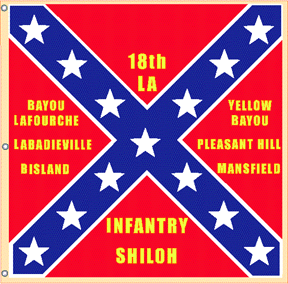HENRY GRAY 1 was born in Laurens District, South
Carolina, January 19, 1816, and was graduated from South
Carolina College (now the University of South Carolina) in
1834. Admitted to the bar, he shortly settled in
Mississippi, where he was for some years district attorney
of Winston County. After serving a term in the legislature,
he ran unsuccessfully for Congress on the Whig ticket. He
moved to Louisiana in 1851, and was a Buchanan Elector in
1856. While a member of the Louisiana legislature in 1860,
he was defeated for a seat in the United States Senate by
but one vote; his opponent was Judah P. Benjamin. Upon the
secession of Mississippi, Gray enlisted as a private in a
regiment from that state; however, President Davis (an
intimate friend) recalled him from this duty, and he was
elected colonel of the 28th Louisiana Infantry, which
he had organized at Davis' request. Gray led his regiment at
Mansfield and Pleasant Hill during the Red River campaign,
and was at times in brigade command. He was promoted
brigadier general, March 17, 1865, while he was representing
North Louisiana in the Confederate Congress, an office to
which he had been elected in his absence and without his
knowledge. After serving a post-bellum term in the Louisiana
state senate, General Gray retired from public life,
thereafter remaining in virtual seclusion until his death at
Coushatta, Louisiana, December 11, 1892. He is buried there
in Springville Cemetery.
HENRY GRAY2...Gen. Henry Gray, of the C. S. A.,
died a few days ago, at the house of his daughter in
Coushatta on Red River.
The deceased was in his earlier years a remarkable man.
Born in South Carolina at manhood he removed to Mississippi
and was the contemporary and close friend of Jefferson Davis
and Sergeant S. Prentiss. He occupied during his residence
in that state, a prominent position as an orator,
politician, and lawyer.
Later on, he removed to Bienville Parish in Louisiana and
very quickly established himself at the head of the bar and
on the political arena in north Louisiana that was , at that
date, noted for its lawyers and orators. In the contest for
United States Senator [1860], he was beaten by the great
Judah P. Benjamin by only one vote.
At the beginning of the war, he joined the Confederate
forces as a private in a Mississippi regiment but on
reaching Virginia he was ordered by his friend, President
Davis, to return to Louisiana and organize a regiment of
infantry.
He did so and became colonel of the 28th Louisiana
Infantry, which did effective service in the
Trans-Mississippi Department In 1862 it was attached to and
formed part of Mouton's brigade, with the 18th Louisiana
Regiment composed of companies raised in Lafourche, New
Orleans, and the Opelousas countries. On the death of Gen.
Mouton at Mansfield, previously promoted to the command of
his own and Polignac's s brigades, Col. Gray was promoted to
brigadier general and given the coommand of his brigade.
Gen. Gray was not famous for his expertness as a
commander of troops but was brave and fearless as a lion and
distinguished himself for boldness and fearlessness in the
bloody charge of his brigade at Mansfield, in which the
commanders of each of his regiments were killed&emdash;
Armant of the 18th; Beard, Clack, and Canfield of the
Crescent; and Walker of the 28th.
After the war, the general has been living a very quiet
life. The loss of an only son, who died in 1864, and that of
his wife subsequently weighed heavy on the old man's mind
and removed from him all the charms of life.
The general was small in stature and not prepossessing in
appearance, and when mounted on his famous big horse, Cesar,
the "boys" used to call him "baby on a monument." Shortly
after the battle of Mansfield, the writer asked him "if he
did not think that the Yankees would get him during the
fight;" the reply was that "he was afraid that they might
get Cesar."
He was averse to everything in the way of display and
always grumbled when he was required to make his appearance
in full uniform.
He was social, kind, careful of his soldiers , attentive
to their wants, and possessed of a keen, black eye that
would dance when he got his anger aroused. In 1864 , he was
elected a member of the Conefederste Congress and left the
army when his command encamped at Camden, Arkansas.
The general was 76 years of age at his death.
He is buried in the valley of the Red River, which he
loved so dearly and where he will rest until the
resurrection do come.
Louisiana has produced many great men, but few have
possessed more of the elements of greatness than Henry Gray.
It required one to know him closely and intimately as did
the writer to understand and appreciate the noble qualities
and generous attributes of the man and to learn the varied
talents and wonderful knowledge that was treasured in his
mind.


